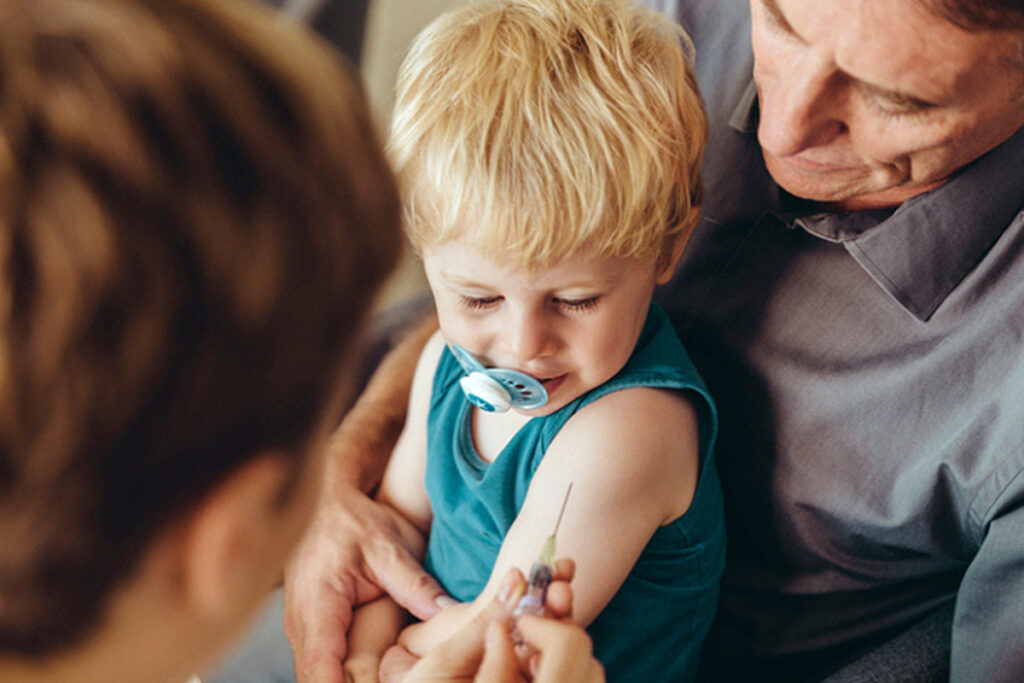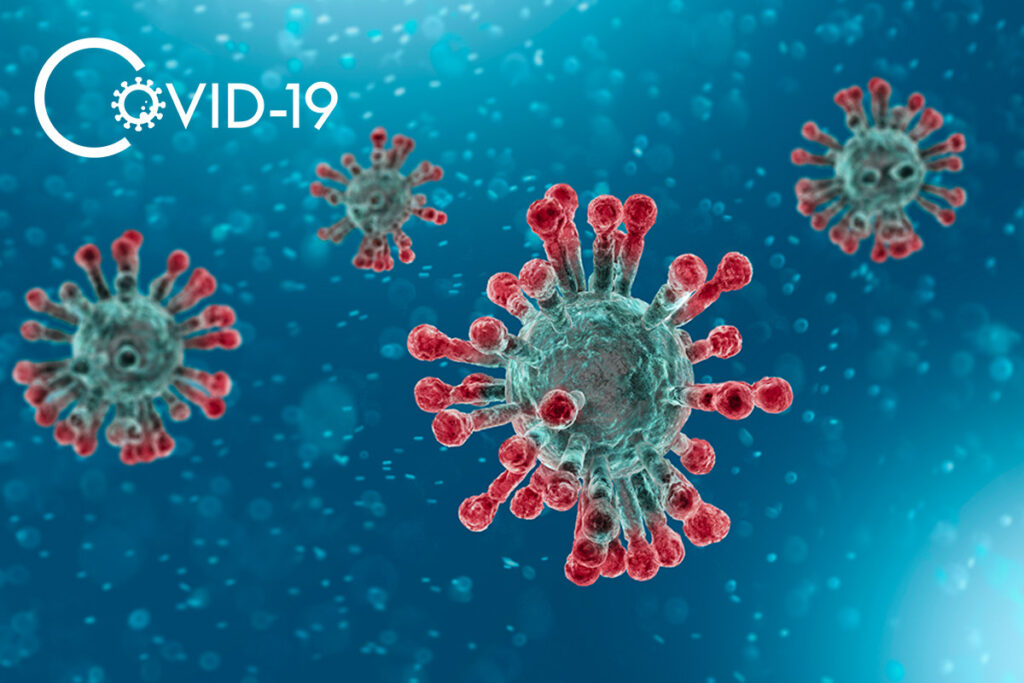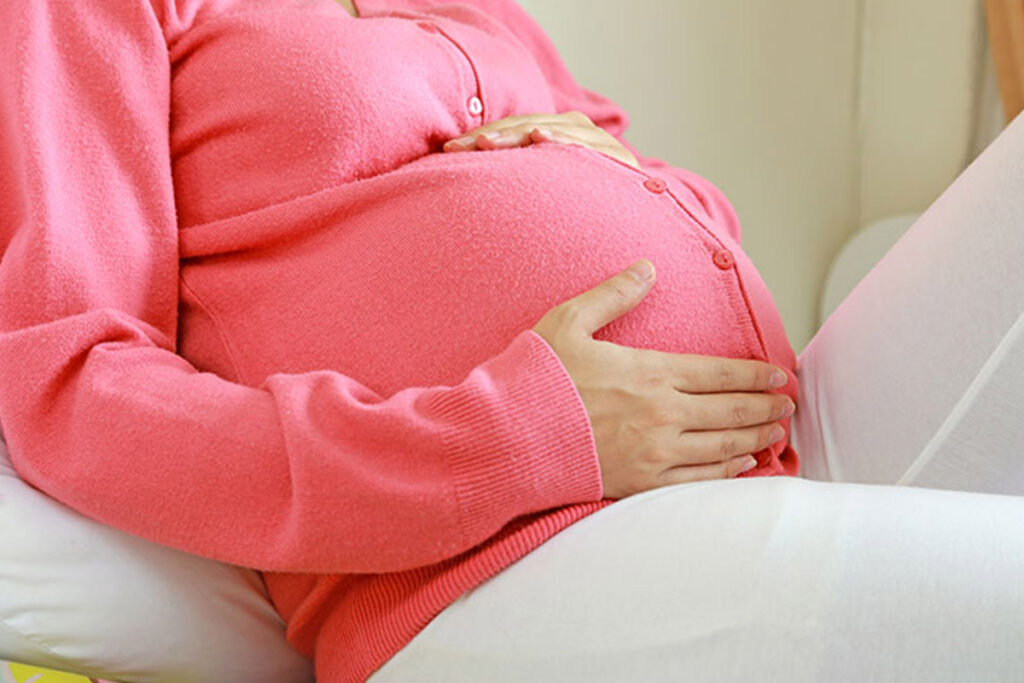VF Treatment

https://advamed.in/ offers a wide range of options to fulfill your dreams of maternity. With the most well-equipped, state-of-the-art infertility treatment accessible and highly experienced experts in the field; we have been able to assist couples and singles all over the world at a most rational price. Advamed Hospital provide world best infertility treatment, an affordable IVF treatment In Zirakpur. For more information visit our Hospital or book an appointment click here https://advamed.in/Appointment.php Client Feedback: who has Blessed With Baby At Advamed Hospital Zirakpur: https://youtu.be/wZhvdPHzPkk
ANNUAL DAY FUNCTION 6TH February 2022, Sunday

MY BABY, MY LIFE “BABY SHOW” PRIZES WORTH 11000/- THE FORM WILL BE OPEN TILL 31 JANUARY 2022. FORM INCLUDES 5 STEPS. EACH STEP CARRIES 10 POINTS. KINDLY FILL CORRECT INFORMATION. RESULTS: FIRST 50 PARTICIPANTS WILL BE SHORTLISTED ON THE BASIS OF STEPS 1 TO STEP 4 & WILL BE INVITED FOR RAMP WALK AND ACTIVITY (STEP-5) AT ADVAMED HOSPITAL, ZIRAKPUR FOR GRAND FINALE ON 06/02/2022 AGE GROUP OF PARTICIPANTS (3 MONTHS TO 7 YEARS) RAMP WALK OF MOTHER WITH BABY ORIGINAL AGE PROOF & VACCINATION CARD REQUIRED FOR THE CONFIRMATION. For Registration click on link below: CLICK HERE FOR PARTICIPATION FOR ANY QUERY & HELP, PLEASE CALL OR WHATSAPP:- 9878903036, 7814883800
VACCINATION IS PROTECTION FOR YOUR CHILD

Vaccines are among the best advances in global health and development. For over two centuries, vaccines have safely reduced the scourge of diseases like polio, measles and smallpox, helping children get older healthy and happy. They save quite five lives every minute – preventing up to 3 million deaths a year, even before the arrival of COVID-19. Why are vaccines important? Vaccines are important because they assist protect us and people around us from preventable diseases like tetanus, HPV, polio, measles, meningitis and pertussis. How? By helping our bodies create immunity – which is that the body’s way of preventing disease. Why vaccinations are important for children Childhood vaccinations are so important because young immune systems are more susceptible to diseases and illnesses. If your child is exposed to a disease like measles for instance, their system might not be strong enough to fight it off. And now that travel is simpler and more common than ever, there’s an increased risk of exposure to diseases that are more prevalent outside of the us . Vaccines are made with disease antigens, which trigger your child’s system to supply antibodies and develop immunity – without getting sick. What diseases do vaccines protect against? Immunizing your baby with vaccines protects against serious diseases like measles, pertussis, polio, meningococcal disease, tetanus, rotavirus, hepatitis A, hepatitis B , chickenpox, influenza, and more. Vaccines won’t protect children from minor illnesses like colds, but they will keep children safe from many serious diseases. I don’t know anybody who has had these diseases. Why does my baby need these vaccines? While a couple of those diseases have virtually disappeared due to vaccination, reported cases of individuals with diseases like measles and pertussis have been on the rise lately. albeit some diseases do completely disappear within the U.S., they’re common in other parts of the planet and are justa plane ride off . If we stop vaccinating against these diseases, many more people will become infected. Vaccinating your child will keep him or her safe. Are there better ways to protect my baby against these diseases? No. Breastfeeding has many benefits and should offer some temporary immunity surely illnesses, but experts agree that it’s not an efficient means of protecting a toddler from the precise diseases prevented by vaccines. Likewise, vitamins won’t protect against the bacteria and viruses that cause these serious diseases. Chiropractic remedies, naturopathy, and homeopathy are totally ineffective in preventing vaccine-preventable diseases.Some parents think that getting the “natural” disease is preferable to “artificial” vaccination, resulting in a “natural” immunity. Some even arrange chickenpox “parties” to make sure their child gets infected. It’s true that for a few diseases, getting infected will cause immunity, but the worth purchased natural diseasecan include paralysis, brain injury, cancer of the liver , deafness, blindness, or evendeath. once you consider the seriousness of those risks, vaccination is definitely the higher choice. Are vaccines safe? Vaccines are safe, and scientists continually work to form sure they become even safer. Every vaccine undergoes extensive testing before being licensed,and vaccine safety continues to be monitored as long as a vaccine is in use. Most side effects from vaccination are minor, like soreness where the injection was given or a low-grade fever. These side effects don’t last long and are treatable. Serious reactions are very rare. the small risk of a significant reaction from vaccination has got to be weighed against the very real risk of getting a dangerousvaccine-preventable disease. How many times do I need to bring my baby in for vaccinations? At least five visits are needed before age two, but the visits are often timed to coincide with well-child check-ups.Your baby should get the primary vaccine (hepatitis B) at birth, while still in the hospital. Multiple visits duringthe first two years are necessary because there are 14 diseases your baby are often protected against, andmost require two or more doses of vaccine for the simplest protection..How do I know when to take my baby in for vaccinations?Your healthcare provider should allow you to know when subsequent doses are due. If you’re unsure , call your healthcare provider’s office to seek out out when yourchild should return for vaccinations. Doses can’t be given too approximate or immunity doesn’t have time to create up. On the opposite hand, you don’t want to delay your child’s vaccinations and obtain not on time because duringthis time, your child remains unprotected against these serious diseases. How do I keep track of my baby’s vaccinations?In many medical practices, your child’s immunization record is entered into an electronic record-keeping system. It’s important that you simply keep home records too, so make certain to invite a private record card or a printed copy ofyour child’s vaccinations. If you don’t receive it, make certain to ask. Bring your copy of the record to all or any medical appointments. Whenever your child receives a vaccine, confirm your copy gets updated. Your child will benefit by havingan accurate vaccination record throughout his or her life.
COVID-19 (Coronavirus)

The virus that causes COVID-19 is especially transmitted through droplets generated when an infected person coughs, sneezes, or exhales. These droplets are too heavy to hold within the air, and quickly fall on floors or surfaces.You can be infected by inhaling the virus if you’re within close proximity of somebody who has COVID-19, or by touching a contaminated surface then your eyes, nose, or mouth.COVID-19 affects different people in several ways. Most infected people will develop mild to moderate illness and recover without hospitalization. Most common symptoms: feverdry coughtirednessLess common symptoms:aches and painssore throatdiarrheaconjunctivitisheadacheloss of taste or smella rash on skin, or discoloration of fingers or toes Coronavirus disease (COVID-19) is an communicable disease caused by a newly discovered coronavirus. Most people infected with the COVID-19 virus will experience mild to moderate respiratory disease and recover without requiring special treatment. Older people and people with underlying medical problems like disorder, diabetes, chronic respiratory illness, and cancer are more likely to develop serious illness. The best thanks to prevent and hamper transmission is to be informed about the COVID-19 virus, the disease it causes and the way it spreads. Protect yourself et al. from infection by washing your hands or using an alcohol based rub frequently and not touching your face. The COVID-19 virus spreads primarily through droplets of saliva or discharge from the nose when an infected person coughs or sneezes, so it’s important that you simply also practice respiratory etiquette (for example, by coughing into a flexed elbow). Stay informed: Protect yourself: advice for the general public Myth bustersQuestions and answersSituation reportsAll information on the COVID-19 outbreakTo prevent infection and to slow transmission of COVID-19, do the following: Wash your hands regularly with soap and water, or clean them with alcohol-based hand rub.Maintain a minimum of 1 meter distance between you and other people coughing or sneezing.Avoid touching your face.Cover your mouth and nose when coughing or sneezing.Stay home if you are feeling unwell.Refrain from smoking and other activities that weaken the lungs.Practice physical distancing by avoiding unnecessary travel and staying far away from large groups of individuals.Protect from COVID-19If COVID-19 is spreading in your community, stay safe by taking some simple precautions, like physical distancing, wearing a mask, keeping rooms well ventilated, avoiding crowds, cleaning your hands, and coughing into a bent elbow or tissue. Check local advice where you reside and work. roll in the hay all!What to do to keep yourself and others safe from COVID-19Maintain a minimum of a 1-metre distance between yourself et al. to scale back your risk of infection once they cough, sneeze or speak. Maintain a good greater distance between yourself et al. when indoors. The further away, the higher.Make wearing a mask a traditional a part of being around people. the acceptable use, storage, and cleaning or disposal are essential to form masks as effective as possible. Here are the fundamentals of the way to wear a mask: Clean your hands before you set your mask on, also as before and after you’re taking it off, and after you touch it at any time.confirm it covers both your nose, mouth, and chin.once you begin a mask, store it during a clean bag, and each day either wash it if it’s a cloth mask or eliminate a medical mask during a ashcan.Don’t use masks with valvesFor specifics on what sort of mask to wear and when read our Q&A and watch our videos. there’s also a Q&A focused on masks and youngsters.determine more about the science of how COVID-19 infects people and our bodies react by watching or reading this interview.For specific advice for decision makers, see WHO’s technical guidance
Child Specialist Doctor In Chandigarh

Though it are often very unsettling for a parent, families should remember that browsing separation anxiety is typical in development. so as to assist your child through this developmental stage, families got to understand what drives separation anxiety and the way to spot coping tools that employment best for his or her family with the help of Advamed hospital, Child Specialist Doctor In Chandigarh. What is Separation anxiety? Children’s separation anxiety are often triggered by many various factors, but at the top of the day, children experience separation anxiety once they are being separated by their primary caregivers, who they trust and feel most comfortable with. Families might experience this once they leave for work, drop off at daycare, or sometimes even just leave the space. once you attempt to leave, your child may become clingy, begin to cry, or throw a tantrum. Separation anxiety can begin as early as infancy and last through preschool years, while some children may never experience it in the least. Children also will experience various degrees of separation anxiety. for instance , some children may experience it when their parents leave them, albeit it’s just to travel to a different room within the house, whereas other children may only experience it when big changes happen within the lives, like starting at a replacement school. How to Battle Separation Anxiety Watching your child get upset once you leave are often very unsettling for folks, but there are a couple of ways to assist ease your child’s separation anxiety. If you recognize that an enormous change that would trigger separation anxiety in your child is approaching, like starting at a replacement childcare center, prepare them for it beforehand. At Educational Playcare, we encourage families to schedule visits Advamed hospital, Child Specialist Doctor In Chandigarh before their first day, in order that their children can become conversant in the environment and their teachers before they begin full-time. This helps your child desire they’re a part of a trusting community, which is one among our Core Values.Create quick goodbye routines. this might be something as simple as a cute goodbye phrase, setting your child up with a book and a blanket, or creating a special handshake once you leave. Whatever you opt, attempt to make your goodbye short and sweet. The longer you stay, the more upset your child will likely become when it’s time to go away.Be consistent. Once you determine a drop-off routine, do your best to remain on target every day. At first, this might be hard to try to, but eventually your child will come to expect it during this point and therefore the consistency will help diminish your child’s anxiety.Keep your promises. Some families wish to help ease their child’s anxiety by telling them once they will return. If you do, make certain to stay your promises to them, as this may help build your child’s trust and confidence once you are apart. Family Friendly St. Patrick’s Day Activities It is important for families to spend quality time together. Not only will your children like to do activities with you and therefore the remainder of the family, but there are many benefits to family time. Spending time together as a family helps form bonds and connections which will be together with your children throughout life. At Educational Playcare, fun is so important to us that it’s one among our Core Values. Here are some fun St. Patrick’s Day themed activities that the entire family can enjoy together: Sensory Play: Children love sensory play because it stimulates their senses and facilitates exploration. Families can make St. Patrick’s Day themed slime or fill a sensory bin with dyed rice, spaghetti, or maybe rainbow gelatin. If your family has sensory bottles reception, change the theme to match the holiday!Virtually Explore Your Community: Your town or surrounding towns may host virtual St. Patrick’s Day celebrations leading up to and on the day of the vacation. Find a virtual celebration your family would celebrate participating in and join the community fun!Art Projects: Creating masterpieces as a family may be a good way to spend time together. At Educational Playcare, we enjoy process-focused art projects because they permit children to practice their fine motor skills while encouraging them to make a decision how and what they doing. Fun St. Patrick’s Day themed process art projects families can do reception include painting employing a toothbrush or color-dyed ice cubes rather than a daily paintbrush, decorating hats using gold and green dotters, or gluing different reminder report onto shamrock-shaped paper.Baking and Cooking: Families can celebrate St. Patrick’s Day by cooking traditional Irish foods like soda bread, meat stews, or potato dishes. While preparing your meal, give your children age-appropriate tasks in order that they can contribute to the celebration. Families can put a St. Patrick’s Day twist to everyday foods by using green coloring within the ingredients. Try employing a couple drops of it in your child’s milk for breakfast or dye your spaghetti rainbow colors! Expanding Your Family: How to Help Your Child Prepare for a New Sibling For those that are brooding about expanding or are close to, you’ll be wondering how this alteration could affect your firstborn. It’s important to understand that every family dynamic is different, which every child will react different to the news and therefore the arrival of a replacement sibling. We’ve all see the heartwarming videos of older siblings crying once they met their brother or sister for the primary time and therefore the videos of a toddler crying once they acknowledged their sibling isn’t a boy or a woman as they hoped. So how do families best explain and prepare their firstborns for the new addition to the family? you can contact our Child Specialist Doctor In Chandigarh Depending on the child’s age, there are many various ways you’ll help prepare your family for a replacement baby. regardless of what, it’s best to elucidate what’s happening in terms which will add up
Pregnancy Care in zirakpur

Though it’s going to sound odd, your first week of pregnancy is predicated on the date of your last menstrual period. Your last menstrual period is taken into account week 1 of pregnancy, albeit you weren’t actually pregnant yet. The expected delivery date is calculated using the primary day of your last period. For that reason, the primary few weeks where you’ll not have symptoms also count toward your 40-week pregnancy. What Bodily Changes Can You Expect During Pregnancy? Pregnancy brings a spread of changes to the body. they will range from common and expected changes, like swelling and fluid retention, to less familiar ones like vision changes. Read on to find out more about them. Most women experience changes in their sense of taste during pregnancy. They typically prefer saltier foods and sweeter foods than non-pregnant women. They even have a better threshold for strong sour, salty, and sweet tastes. Dysgeusia, a decrease within the ability to taste, is most ordinarily experienced during the primary trimester of pregnancy. Certain taste preferences may vary by trimester. Although many ladies experience a dulled sense of taste for a brief period of your time postpartum, they typically regain full taste capability after pregnancy. Some women also experience a metallic taste within the mouth during pregnancy. so all that need is Pregnancy Care with advamed hospital. All these above mentioned things will aggravate nausea and should indicate a nutrient imbalance. Learn more about impaired taste. 7 Foods to Help Your Acid Reflux Diet and nutrition for GERDAcid reflux occurs when there’s acid backflow from the stomach into the esophagus. This happens commonly but can cause complications or troublesome symptoms, like heartburn. One reason this happens is that the lower esophageal sphincter (LES) is weakened or damaged. Normally the LES closes to stop food within the stomach from moving up into the esophagus. The foods you eat affect the quantity of acid your stomach produces. Eating the proper sorts of food is vital to controlling acid reflux or esophageal reflux disease (GERD), a severe, chronic sort of acid reflux.None of those foods will cure your condition, and your decision to use these specific foods to appease your symptoms should be supported your own experiences with them. Vegetables, Ginger, Oatmeal, Noncitric fruits, Lean meats and seafood, Egg whites, Healthy fatsHigh-fat foodsFried and fatty foods can cause the LES to relax, allowing more stomach acid to copy into the esophagus. These foods also delay stomach emptying. Eating high-fat foods puts you at greater risk for reflux symptoms, so reducing your total daily fat intake can help. The following foods have a high-fat content. Avoid these or eat them sparingly: french fries and onion ringsfull-fat dairy products, like butter, milk, regular cheese, and soured creamfatty or fried cuts of beef, pork, or lambbacon fat, ham fat, and larddesserts or snacks, like frozen dessert and potato chipscream sauces, gravies, and creamy salad dressingsoily and greasy foods Supplements During Pregnancy: What’s Safe and What’s Not If you’re pregnant, you’ll think that feeling overwhelmed and confused comes with the territory. But it doesn’t need to be so confusing when it involves vitamins and supplements. If you probably did your extra credit work, we bet you already know that prime mercury seafood, alcohol, and cigarettes are off-limits during pregnancy. What may surprise you is that some vitamins, minerals, and herbal supplements should be avoided also. Pregnancy increases the necessity for nutrientsDuring pregnancy, macronutrient intake needs grow significantly. Macronutrients include carbohydrates, proteins, and fats. For example, protein intake must increase from the recommended 0.36 grams per pound (0.8 grams per kg) of weight for non-pregnant women to 0.5 grams per pound (1.1 grams per kg) of weight for pregnant women. You’ll want to include protein in every meal and snack to satisfy your needs but still, if you are confused you need to discuss it with a specialist who will explain to you about Pregnancy Care so you must visit advamed hospital for pregnancy care. The requirement for micronutrients, which include vitamins, minerals, and trace elements, increases even more Trusted Source than the necessity for macronutrients. While some people are ready to meet this growing demand through a well-planned, nutrient-dense eating plan, it are often a challenge for others. You may got to take vitamin and mineral supplements for various reasons, including: Nutrient deficiencies: Some people may have a supplement after a biopsy reveals a deficiency during a vitamin or mineral. Correcting deficiencies is critical, as a shortage of nutrients like folate has been linked to birth defects.Hyperemesis gravid arum: This pregnancy complication is characterized by severe nausea and vomiting. It can cause weight loss and nutrient deficiencies.Dietary restrictions: Women who follow specific diets, including vegans and people with food intolerances and allergies, may have to supplement with vitamins and minerals to stop micronutrient deficienciesSmoking: Although it’s critical for mothers to avoid cigarettes during pregnancy, those that still smoke have an increased need Trusted Source for specific nutrients like vitamin C and folate.Multiple pregnancies: Women carrying quite one baby have higher micronutrient needs than women carrying one baby. Supplementing is usually necessary to make sure optimal nutrition for both the mother and her babies.Genetic mutations like MTHFR: Methylenetetrahydrofolate reductase (MTHFR) may be a gene that converts folate into a form that the body can use. Pregnant women with this point mutation may have to supplement with a selected sort of folate to avoid complications.Poor nutrition: Women who under eat or choose foods that are low in nutrients may have to supplement with vitamins and minerals to avoid deficiencies.In addition, experts like those at the American College of Obstetricians andGynecologists (ACOG) recommend that each one pregnant people take a prenatal vitamin and vitamin Bc supplement. this is often advised to fill nutritional gaps and stop developmental abnormalities at birth like rachischisis. Depending on your personal circumstances, be prepared to require on the task of adding supplements to your daily routine if directed by your healthcare provider. 13 Foods to Eat When You’re Pregnant Pregnant?

